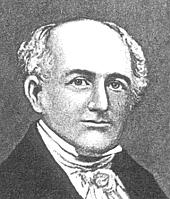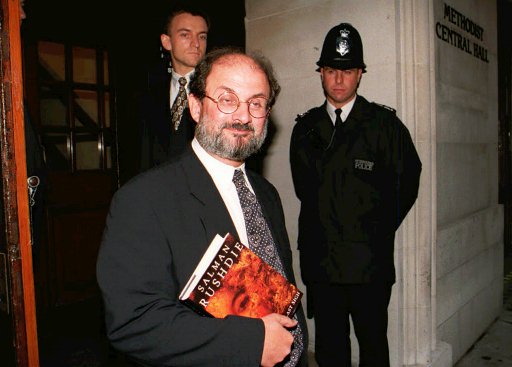Blasphemy laws punish people who make oral or written statements that are understood to express irreverence for sacred things.
Long a feature of English and colonial societies and still prominent in some theocratic regimes, laws against blasphemy have disappeared in the United States because of First Amendment protections for religious beliefs and its protections for speech and press. Such laws were most frequently associated with the kind of religious establishment that the First Amendment limited at the national level and that courts later applied via the Fourteenth Amendment to the states.
Blasphemy laws originated to punish nonbelievers
In the Bible, Leviticus 24:15–16 calls for the stoning of anyone who curses the God of Israel. Ancient Greece and Rome had similar prohibitions against those who spoke ill of the gods.The trial of Jesus was predicated in part on the idea that he had made blasphemous claims to be God.
Although Christians initially sought converts through speech and persuasion and stressed the separation of religious and political duties (Jesus had said, “Render unto Caesar the things that are Caesar’s and to God the things that are God’s”), after Emperor Constantine I proclaimed Christianity the official religion of Rome, Christians increasingly used state powers to punish both those who blasphemed God and those within their own ranks whom they believed to be heretics.
With the dawn of the Reformation, Catholics and Protestants used laws not only to battle one another but also to strike out at unbelievers. The English jurist William Blackstone defined blasphemy as “denying the being or providence of God, contumelious reproaches of our Saviour Jesus Christ, profane scoffing at the Holy Scripture, or exposing it to contempt or ridicule” (as quoted in The Catholic Encyclopedia).
Early colonists established blasphemy standards in states
Just as the English punished those who blasphemed the doctrines of the established church, so too the Pilgrims set standards of orthodoxy in the infant United States that they enforced by the sword. Massachusetts banished, and occasionally executed, Quaker dissenters who refused to stay away from the state.
Most of the 13 original states established churches, and many officially restricted office-holding to Trinitarians or to those who professed to believe biblical doctrines. By contrast, the U.S. Constitution prohibited test oaths for federal officials, but it did not interfere with existing state practices. In time, however, the prohibition on federal religious oaths, as well as the provisions of the First Amendment, had a liberalizing effect on state practices.

Abner Kneeland was the last man jailed for blasphemy in the United States. In his 1838 case, he was convicted of blasphemy for publishing articles about prayer and the Immaculate Conception, and indicating he did not believe in God, Christ, miracles, the resurrection or immortality. Blasphemy laws soon disappeared from the U.S. due to the First Amendment. (Image via Wikimedia Commons, public domain)
New York, Massachusetts high courts upheld blasphemy convictions
Two famous 19th-century cases epitomized the lingering remnants of blasphemy laws. In People v. Ruggles (N.Y. 1811), a New York court upheld the conviction of a man who referred to Jesus and his mother in unflattering terms. Even though New York no longer had a statute on the subject, the court’s chief judge, James Kent, ruled that the offense of blasphemy violated the state’s common law as carried over from England (but Kent believed that the state laws prohibited blasphemy only against the Christian religion).
In Commonwealth v. Kneeland (Mass. 1838), the Supreme Court of Massachusetts, led by Lemuel Shaw, upheld the conviction of a publisher who denied the existence of God, Jesus, and miracles. Both convictions resulted in relatively short jail terms (and in Ruggles a fine).
Even as late as 1887 in New Jersey, blasphemy laws were used to protect the peace. In that case, a former Methodist minister, Charles B. Reynolds, was fined for publishing a pamphlet entitled “Blasphemy and the Bible” outlining his religious view as well as a satirical cartoon entitled “Casting pearls before swine.” Robert Ingersoll, a leading attorney and freethinker of the time, defended Reynolds, arguing that the laws were an outdated remnant of an ignorant and intolerant past and enslaved the human minds. The jury, however, upheld the conviction.
Finally, in 1952, the U.S. Supreme Court overruled a state supreme court decision in a case in which New York education law allowed a film to be banned on the basis of its being “sacrilegious.” The court declared in Burstyn v. Wilson (1952) that governments had no business suppressing attacks on religious doctrines and New York’s law violated the First Amendment.
Other parts of the world still have blasphemy laws
The laissez-faire attitude that the U.S. government takes toward religious doctrine contrasts with practices in other parts of the world.
For example, Iran’s Ayatollah Khomeini issued a fatwa, or legal declaration, in 1989 calling on Muslims to execute novelist Salman Rushdie, whose book The Satanic Verses was judged by Khomeini to be blasphemous. Similarly, mobs in many Arab countries reacted violently in 2005–2006 when Danish newspapers published cartoons that depicted the prophet Mohammed in unfavorable ways.
There were similar reactions in 2012 to the production of a film, Innocence of Muslims, which portrayed the prophet Mohammed in an unfavorable light. Years after a French satirical magazine Charlie Hebdo published cartoons of the prophet Mohammed in 2006, it was the subject of an Al Qaeda terrorist attack.

World publications can face violence after publishing blasphemous material. Years after a French satirical magazine Charlie Hebdo published cartoons of the prophet Mohammed in 2006, it was the subject of an Al Qaeda terrorist attack. In this photo, Charlie-Hebdo director Philippe Val arrives at a Paris court, Wednesday Feb. 7, 2007 to face charges with “publicly defaming a group of people because of their religion.” The French satirical weekly defended itself in court against defamation charges over reprinting caricatures of the Prophet Muhammad in 2006 which stoked outrage and violence across the Islamic world. (AP Photo/Jacques Brinon, used with permission from the Associated Press)
Some express concern over ‘terrorist veto’
Daniel Ortner notes that the strong presumption against prior restraint would likely protect any of these publications in the United States. He further observes that “Provocative Images Are Speech with High Intrinsic Worth” (2016, p. 27); that the publications were not, like fighting words, directed to a specific person; that although they were later capitalized upon, they rarely if ever posed an “imminent” danger; that unlike true threats, they were not designed to cause harm; and that it is very unlikely that laws seeking to regulate them could survive strict judicial scrutiny.
Ortner expressed concern over what he called a “terrorist veto,” similar to the “heckler’s veto,” affecting not simply words that provoke imminent reaction but those that can result in terrorist acts years after publication. He feared that the reaction to prior depictions of Mohammed have already had a chilling effect on publication outlets.
Notably in 2009, when Yale University Press published a book by Jytte Klausen, The Cartoons That Shook the World, it decided not to reprint the cartoons that were its primary subject.
On Dec. 7, 2020, the U.S. House of Representatives adopted a resolution sponsored by Rep. Jamie Raskin of Maryland by a 386 to 3 vote citing Article 18 of the International Declaration of Human Rights and calling upon all nations to repeal their blasphemy laws and to release all individuals who had been imprisoned under them.
John Vile is professor of political science and dean of the Honors College at Middle Tennessee State University. He is co-editor of the Encyclopedia of the First Amendment. This article was originally published in 2009 and last updated in February 2024.

